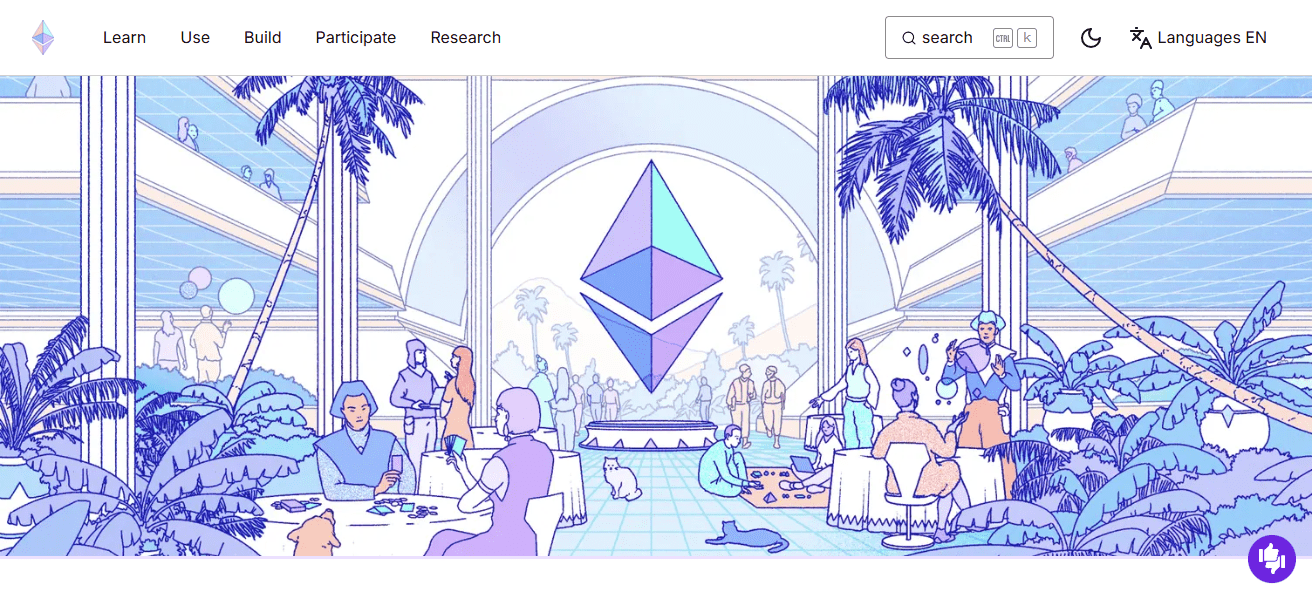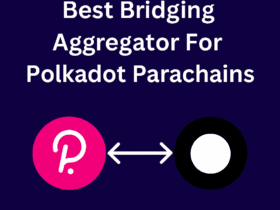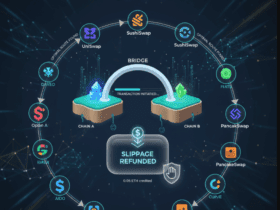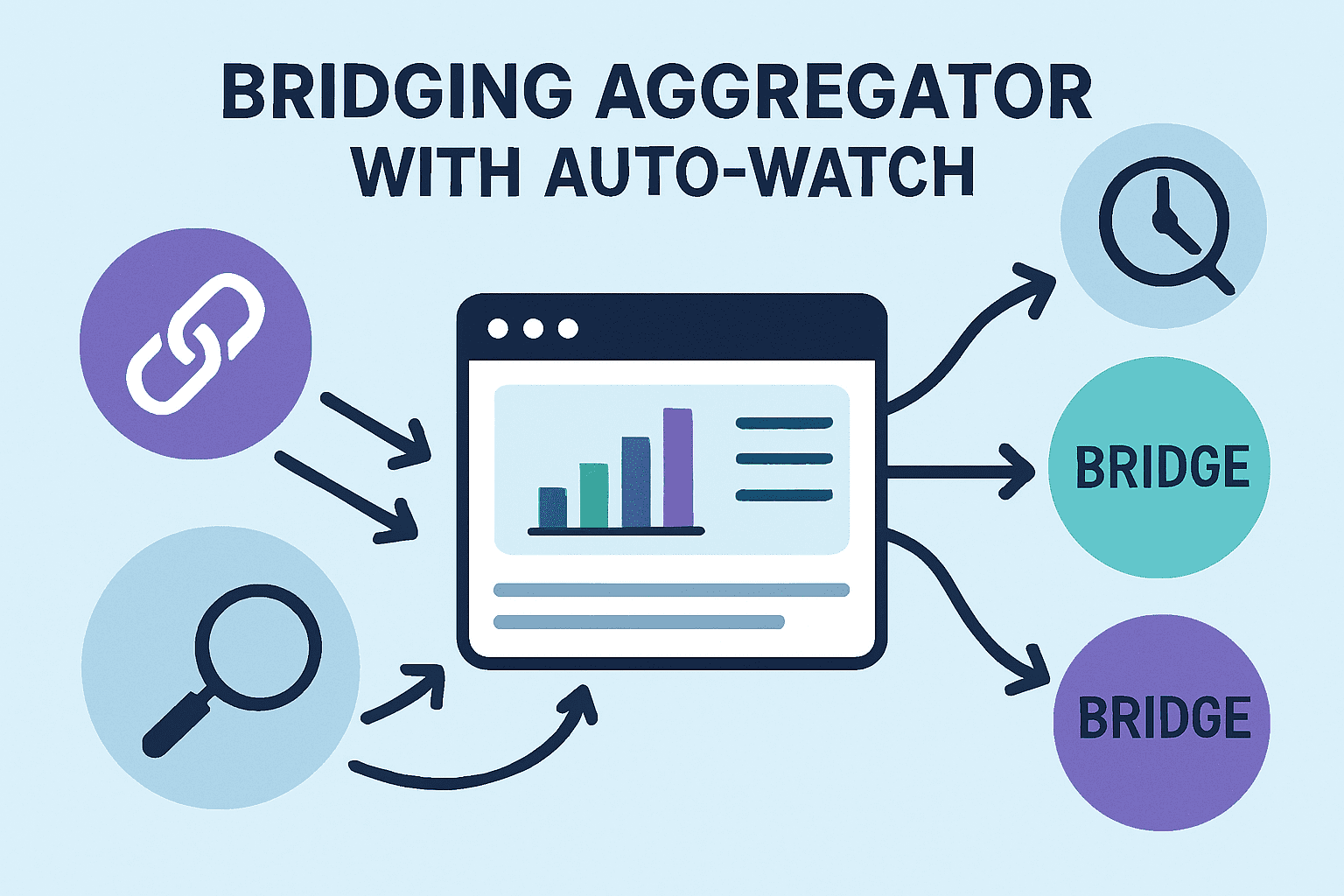In this article, I focus on Ethereum Rollup Aggregators and explain their role in easing DeFi trading on the Ethereum blockchain.
These platforms amalgamate liquidity from various decentralised exchanges, streamline the trading processes, and utilise layer-2 rollups to minimise costs and enhance transaction speed.
Both novice and experienced traders will find that Ethereum Rollup Aggregators streamline the process and reduce the cost of participating in decentralised trading.
How to Select an Ethereum Rollup Aggregator for Simpler DeFi Trades
Liquidity Aggregation – Select an aggregator platform with multiple connected DEXs for optimal pricing and lower slippage.
Supported Networks – Ensure compatibility with Ethereum Rollups like Optimism and Arbitrum for lower fees and faster transactions.
Gas Optimisation – Select those with efficient trade routing and low gas fees.
User Interface – Select platforms with simple, easy-to-use interfaces.
Security & Audits – Determine if the aggregator conducts audits on smart contracts and ensure they’re non-custodial to guard funds.
Token Support – Double-check the listed tokens for trading in supported tokens.
Advanced Features – Tailor limit orders, MEV protection, and portfolio monitoring to your requirements.
Reputation & Reviews – Gather feedback and assess dependability and platform reputation before trading.
Key Points & Ethereum Rollup Aggregator For Simpler Defi Trades List
| Aggregator | Key Features |
|---|---|
| 1inch | Aggregates liquidity across multiple DEXs, ensuring optimal trade execution. Facilitates cross-chain swaps. |
| Matcha | Offers a user-friendly interface with smart routing for the best prices across various DEXs. |
| Paraswap | Provides efficient token swaps by aggregating liquidity from various sources, minimizing slippage. |
| Zerion | Combines DeFi portfolio management with swap functionality, allowing users to trade directly from their dashboard. |
| DexGuru | Real-time trading analytics and smart routing for optimal trade execution. |
| OpenOcean | Multi-chain DEX aggregator offering seamless cross-chain swaps and yield farming opportunities. |
| Slingshot | Provides a simple interface for trading with deep liquidity and minimal slippage. |
| DODO | Offers proactive market-making and smart routing for efficient token swaps. |
| SushiSwap | Decentralized exchange with integrated yield farming and staking options. |
| Uniswap | Leading decentralized exchange with a wide range of token pairs and liquidity pools. |
10 Ethereum Rollup Aggregator For Simpler Defi Trades
1.1inch
1inch stands out as a prominent Ethereum-based DEX aggregator. It pulls liquidity from a variety of dexes to offer the most favourable rates for users’ token swaps. Its smart routing algorithm splits trades across several platforms to lower slippage and fees.
Furthermore, 1inch leverages layer-2 solutions to facilitate cross-chain swaps, improving speed and reducing gas fees.

The platform accommodates participants across the trading expertise spectrum by incorporating sophisticated limit order and liquidity provision features, enabling the easy execution of sophisticated strategies. 1inch reduces the cost of DeFi trading by optimizing execution and aggregating liquidity.
| Pros | Cons |
|---|---|
| Aggregates liquidity from multiple DEXs for optimal pricing | Complex interface may be challenging for beginners |
| Supports multiple blockchains and wallets | Occasional high transaction fees for small trades |
| Non-custodial, ensuring user control over funds | Potential delays during network congestion |
2. Matcha
Matcha offers a streamlined interface for trading DeFi tokens across various Ethereum-based decentralised exchanges. Its smart order routing system streamlines trade paths, lowering slippage and securing the best possible prices.
Matcha, built on the 0x protocol, aggregates liquidity from leading DEXs, including Uniswap, SushiSwap, and Balancer. The platform’s beginner-friendly focus includes transparent pricing, clear transaction logs, and seamless wallet integration.

Speedy low-cost trading is also available with layer-2 solution support. The combination of smart routing, low friction, and powerful matcher algorithms gives DeFi traders on Matcha a hassle-free trading experience with maximized returns.
| Pros | Cons |
|---|---|
| Offers the best price 93% of the time across trade sizes | Limited to Ethereum and Polygon networks |
| Provides gasless swaps with optional MEV protection | Limited advanced trading features compared to some DEXs |
| Clean, user-friendly interface | May not support all token pairs available on other DEXs |
3. Paraswap
Paraswap, traders have access to optimal token swap rates with minimal slippage due to the platform’s liquidity aggregation from multiple decentralised exchanges. Its execution-efficient routing engine also divides and executes trades on multiple DEXs.
Diverse liquidity access while trading with lower transaction fees is a direct consequence of Paraswap’s system. Also, layer 2 Ethereum rollups are supported, so faster transactions and lower gas fees are available.

Beyond trading, Paraswap is integrated into DeFi protocols with seamless wallet trading options. Traders who need advanced trading features and a transparent fee structure turn to Paraswap. The focus remains the same: simplifying DeFi interactions while maximising value for users.
| Pros | Cons |
|---|---|
| Aggregates liquidity from major DEXs for better pricing | Limited to Ethereum and Polygon networks |
| Optimizes swaps with lower slippage and gas fees | May not support all token pairs available on other DEXs |
| Free to use with wallet integrations | User interface may be less intuitive for beginners |
4. Zerion
Zerion offers a synthesis of DeFi trading and portfolio management, enabling users to track and swap assets through a unified interface. Zerion neither works with one DEX exclusively nor with one DEX at a time; rather, it aggregates liquidity from numerous DEXs and accepts Ethereum rollups to accelerate and subsidise trades.

Through Zerion’s dashboard, users obtain a holistic view of their holdings, transactions, and yield opportunities across numerous protocols. The ability to swap tokens within the platform reduces the need to use multiple apps.
Through trade analytics, portfolio management, and efficient swap execution, Zerion equips users with the ability to act decisively and efficiently manage their assets. Layer-2 solutions bolster the usability and cost efficiency of DeFi trading, while the intuitive design enhances Zerion’s usability.
| Pros | Cons |
|---|---|
| Offers a clean, user-friendly interface for DeFi and NFTs | Limited to non-custodial wallets; no support for centralized exchange assets |
| Provides a comprehensive portfolio tracker | Lacks advanced trading features like margin or futures trading |
| Supports multiple DeFi protocols and assets | May not support all token pairs available on other platforms |
5.DexGuru
Incorporating liquidity from multiple DEXs, DexGuru offers decentralised trading combined with real-time market analytics. It streamlines trading by providing portfolio management analytics as well as smart routing to lower slippage.
The interface includes live charts, a transaction history, and price alerts, rendering it suitable for active traders. Ethereum rollup integration enhances transaction confirmation time and lowers gas fees.

DexGuru offers all-in-one market, portfolio, and token performance monitoring. By combining analytics and execution, DexGuru enables traders to access data-driven trading at lower costs and faster settlement times while enhancing accessibility to DeFi trading.
| Pros | Cons |
|---|---|
| Provides real-time data and analytics | Limited to market orders; no support for limit orders |
| Supports multiple blockchains | Only supports spot trading; no margin or derivatives |
| No transaction fees on trades | User interface may be overwhelming for beginners |
6.OpenOcean
OpenOcean operates as a multi-chain DEX aggregator, enhancing cross-chain trading on Ethereum, Binance Smart Chain, and other ecosystems. It fetches liquidity from different DEXs to ensure optimal rates for token swaps.
OpenOcean supports Ethereum rollups, thereby enabling faster transactions with lower gas fees, benefiting OpenOcean’s high-volume traders. Furthermore, OpenOcean Yield aggregator integrates with yield farming and staking protocols, enabling closed-loop return maximisation directly from the aggregator.

OpenOcean’s advanced smart routing algorithm decreases slippage by executing portions of trades on different platforms. OpenOcean blends multi-chain access, layer-2 mechanics, and ample liquidity to unlock complex DeFi operations for both novice and seasoned traders.
| Pros | Cons |
|---|---|
| Aggregates liquidity across multiple chains | Limited to crypto deposits; no fiat on-ramps |
| Competitive 0.2% trading fees | Withdrawal fees vary based on chain and source |
| Offers gas fee refunds for OOE stakers | Requires substantial staking for gas fee refunds |
7. Slingshot
Slingshot is a DeFi aggregator focused on offering an efficient and low-slippage token swap. With the use of Ethereum rollups, Slingshot provides faster and cheaper transactions by aggregating liquidity from multiple decentralised exchanges.
Slingshot offers a very simple interface that enables users to access a variety of DEXs and complete trades in a matter of seconds. Slingshot’s real-time price comparison features and optimised routing further guarantee that users do not miss out on the best possible prices.

Their design caters to all users, from complete novices to experienced traders. Slingshot’s combination of efficient routing, low fees, and ease of use makes decentralised trading a streamlined, effortless experience.
| Pros | Cons |
|---|---|
| 0% swap fees with fast, sub-second trade execution | Low trading volumes; daily under $100k |
| Access to 40k+ tokens across multiple chains | Limited number of active pairs/tokens on-chain |
| Fiat on-ramps available (cards, PayPal, Apple Pay) | Absence of regulation may concern institutional users |
8. DODO
Dodo is an aggregator and decentralised exchange with proactive market making (PMM) technology that ensures deep liquidity and competitive pricing. Dodo Trade performs faster trades with lower gas fees by sourcing liquidity from multiple DEXs and making use of Ethereum rollups.
Token swap execution is optimised, and smart routing algorithms minimise slippage. In addition to trading, it also enables liquidity provision, yield farming, alongside crowdpooling, offering multiple avenues in DeFi.

This is further complemented by layer 2 and scaling solution integration. Dodo is making DeFi accessible to everyone by lowering barriers through advanced automated liquidity market making, consolidated DeFi yield farming tools, and DeFi trading interfaces with reduced trade complexities.
| Pros | Cons |
|---|---|
| Utilizes Proactive Market Maker (PMM) for higher liquidity | Limited to Ethereum and BNB Chain networks |
| Offers low slippage and efficient trade execution | May not support all token pairs available on other DEXs |
| Provides a user-friendly interface | Lacks advanced trading features like margin or derivatives |
9.SushiSwap
SushiSwap is a decentralised exchange that enables yield farming, staking and also has built-in token swap features. It minimises slippage and ensures competitive prices by aggregating liquidity from different pools.
SushiSwap also supports Ethereum rollups, which further lower gas fees and enhance transaction speed. Additional features provided by SushiSwap, such as Onsen and Kashi, allow users to earn while trading or lending assets.

Participants in the community also aid in governance, which increases transparency and decentralisation. By integrating liquidity aggregation, layer two scaling, and yield farming, SushiSwap creates a single access point to earn and trade while engaging with DeFi.
| Pros | Cons |
|---|---|
| Offers yield farming and staking opportunities | Governance concerns due to centralization |
| Supports multiple blockchains | Lower trading volumes compared to competitors |
| Provides a wide range of token pairs | May have higher slippage on less liquid pairs |
10. Uniswap
Uniswap remains the number one DEX on the Ethereum network in terms of the number of token pairs and liquidity pools offered. It allows swaps to be made directly and also makes use of layer-2 rollups to reduce costs and speed up transactions.
Uniswap implements the automated market maker (AMM) model, which makes it possible to achieve deep liquidity and enables users to trade large amounts of tokens with small slippage. Uniswap also allows users to exchange assets and earn fees in the process.

It incorporates automated liquidity provision that makes the trading process simple and intuitive for both novices and experienced traders. Uniswap offers the aggregated liquidity of several DEXs, the efficiency of trade using AMMs, and the speed of layer-2, which makes DeFi trading and managing portfolios much easier.
| Pros | Cons |
|---|---|
| High liquidity and low slippage | Limited to Ethereum-compatible tokens |
| Supports a wide range of token pairs | Requires ETH for transaction fees |
| Offers governance through UNI token | May have higher fees during network congestion |
Conclsuion
To summarise, Ethereum rollup aggregators have streamlined DeFi trading by linking numerous DEXs, performing price optimisation, as well as gas fee minimisation.
Services like 1inch, Matcha, and Paraswap facilitate quicker and less expensive transactions through simple and easy-to-navigate platforms. With these services, DeFi is more or less accessible and more efficient for traders at all experience levels.
FAQ
A platform that combines liquidity from multiple DEXs on Ethereum rollups to offer better prices and lower fees.
To save on gas fees, reduce slippage, and execute trades faster.
1inch, Matcha, Paraswap, Zerion, DexGuru.
Anyone with a compatible crypto wallet.












Got a Questions?
Find us on Socials or Contact us and we’ll get back to you as soon as possible.